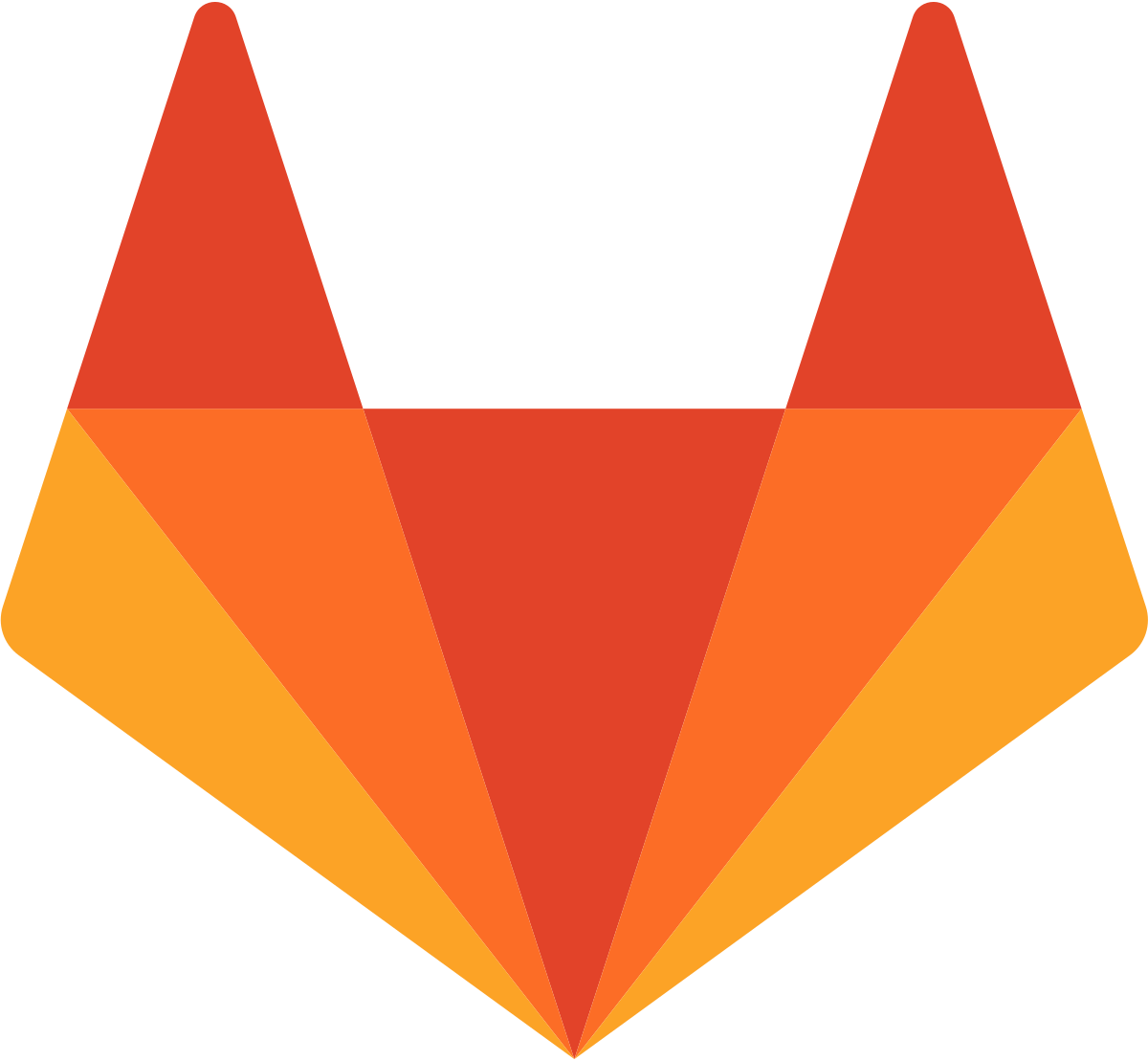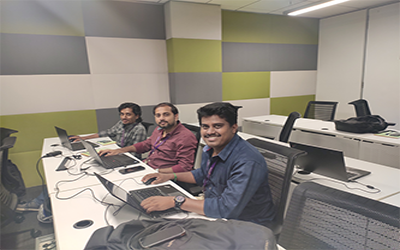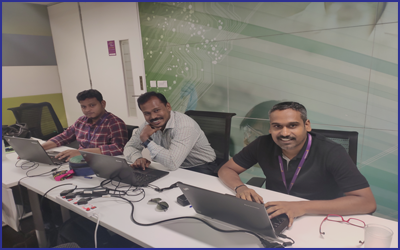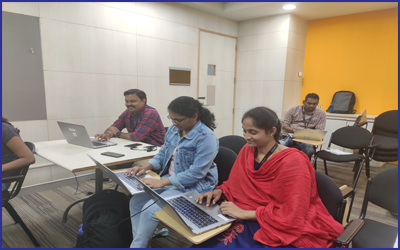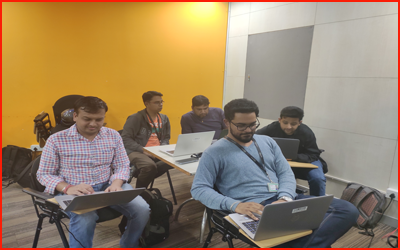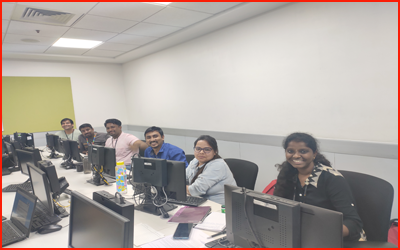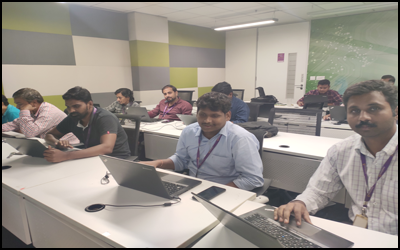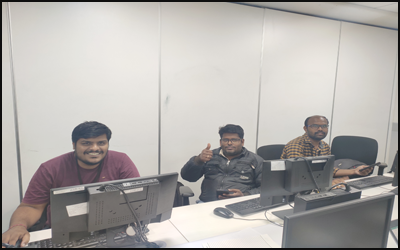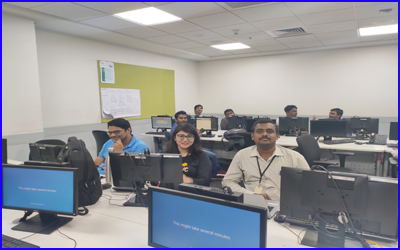8000+
Certified Learners
15+
Years Avg. faculty experience
40+
Happy Clients
4.5/5.0
Average class rating
What is GitLab User?
A GitLab user is an individual who has created an account on the GitLab platform to collaborate on software development projects. GitLab users can manage code repositories, track issues, review merge requests, and contribute to continuous integration and deployment (CI/CD) pipelines. Each user has a unique username and profile, and they may be assigned different roles within a project or group, such as Developer, Maintainer, or Guest, depending on their level of access and responsibilities. Whether working independently or as part of a team, GitLab users leverage the platform's powerful DevOps tools to streamline development workflows, ensure code quality, and enhance collaboration throughout the software lifecycle.
DevOpsSchool Provides GitLab User Training and Certification course Live Instructor-Led online training and workshop training in Hyderabad. Who has more than 15 years’ experience in IT Company. DevOpsSchool offer online and classroom program worldwide including Bangalore, Hyderabad, Pune, Mumbai, India, Netherlands, etc. Git Advance Training and Certifications course management tools are building structures of software deployment, automation and success delivery and increase in operational efficiency.
Why GitLab User is Important?
A GitLab User is important because they represent the individual identity or account that interacts with GitLab — the platform used for version control, CI/CD, and DevOps automation. Here’s why GitLab users are essential:
1. Access and Permissions
Each GitLab user has specific roles and permissions (like Guest, Reporter, Developer, Maintainer, Owner) that control what actions they can perform in projects and groups. This ensures secure and controlled collaboration.
2. Code Collaboration
GitLab users create, review, and merge code via merge requests, enabling team collaboration, version tracking, and peer reviews — all essential for high-quality code delivery.
3. Activity Tracking
Each user's actions (commits, issues, comments, pipeline runs) are logged and visible, providing transparency and accountability in the development process.
4. CI/CD Automation
Users configure and trigger GitLab CI/CD pipelines for automated builds, tests, and deployments, ensuring faster and more reliable software delivery.
5. Project & Group Management
GitLab users can create and manage projects, groups, issues, milestones, and repositories, supporting both small and large-scale development workflows.
6. Security and Compliance
User-level authentication (with options like 2FA, SAML, LDAP) ensures that only authorized users can access and modify repositories, which is critical for enterprise security.
7. Personalization and Notifications
Users can customize notifications, access dashboards, and manage their SSH keys, tokens, and preferences, enhancing their productivity and security.
Course Feature
A Course Feature refers to the key elements and benefits offered within an educational course that enhance the learning experience for students. These features may include interactive video lectures, downloadable resources, quizzes, assignments, real-time assessments, certificates upon completion, and access to a community or discussion forum. Additional features can involve expert instructor support, flexible learning schedules, lifetime access to course materials, and mobile-friendly platforms. Together, these features are designed to make learning more engaging, accessible, and effective, catering to various learning styles and helping learners achieve their educational or career goals.
Training Objectives
Training objectives are clear, measurable statements that define what learners should know or be able to do after completing a course or training program. They guide the design of course content and assessments, ensuring that training is purposeful and outcomes-driven.
General Training Objectives
- Enhance Technical Skills: Improve participants' proficiency in specific technical areas or tools, such as software development, DevOps practices, or version control systems.
- Develop Proficiency in Software: Ensure learners can effectively use particular software or platforms relevant to their roles, such as GitLab or other DevOps tools.
- Enable Team Collaboration: Teach learners how to work efficiently in teams using collaborative tools and workflows, supporting project organization and communication.
- Implement Best Practices: Instill industry best practices for workflows, project management, and problem-solving within the relevant domain.
GitLab Training Objectives
For a GitLab-focused course, typical training objectives include:
- Understand Git and GitLab Fundamentals: Gain foundational knowledge of Git version control and the GitLab platform, including repository management and basic operations (clone, pull, commit, push).
- Master Collaboration Features: Learn to use GitLab’s collaborative features such as merge requests, issue tracking, and branching strategies to streamline teamwork and project management.
- Implement Continuous Integration/Continuous Delivery (CI/CD): Acquire skills to set up and manage CI/CD pipelines, automating testing and deployment for faster, more reliable software delivery.
- Develop Autonomy with Tools: Become self-sufficient in using command-line and graphical interfaces for Git and GitLab, handling version conflicts, and managing branches.
- Apply Workflows and Best Practices: Understand and implement various Git workflows (e.g., feature branching, GitFlow) and apply best practices for code quality and collaboration.
- Project Management with GitLab: Utilize GitLab for tracking issues, managing projects, and monitoring progress through its integrated project management tools.
Target Audience
GitLab training and courses are designed to serve a wide spectrum of professionals and organizations looking to enhance their DevOps, version control, and CI/CD skills. The target audience typically includes:
1. IT and Software Professionals
- Junior IT Professionals: Especially those with at least six months of experience with Git, looking to build foundational GitLab skills and use the platform at a professional level.
- Software Developers and Engineers: Individuals seeking to streamline development workflows, improve collaboration, and manage code using GitLab.
- DevOps Engineers: Professionals aiming to master CI/CD pipelines, automation, and DevOps best practices with GitLab.
- System and Network Administrators: Those responsible for managing infrastructure and integrating GitLab into operational workflows.
- Release, Automation, and Continuous Integration Engineers: Specialists focused on automating software delivery and deployment processes.
2. Project and IT Managers
- Project Managers: Those overseeing software projects who want to leverage GitLab’s project management and collaboration features for better team coordination and productivity.
- IT Managers and Leaders: Decision-makers seeking to implement modern DevOps practices within their teams or organizations.
3. Teams and Organizations
- Small to Large Teams: GitLab training is suitable for teams of any size, from small groups to entire departments, aiming to standardize workflows and improve efficiency.
- Enterprises: Large organizations looking for scalable, customizable training to upskill multiple teams or departments.
4. Learners with Varying Experience Levels
- Beginners: Entry-level professionals or those new to GitLab and DevOps, provided they have some basic IT and Git knowledge.
- Intermediate and Advanced Users: Experienced professionals seeking to deepen their expertise in advanced GitLab features, CI/CD, and automation.
5. Other Related Roles
- Quality Assurance Analysts: Those interested in understanding developer workflows and integrating testing into CI/CD pipelines.
- Site Reliability and Infrastructure Engineers: Professionals focused on maintaining robust, scalable, and reliable systems using GitLab.
Training Methodology
Training Methodology refers to the structured approach and techniques used to deliver training effectively and ensure that learners gain the intended knowledge and skills. It includes a mix of instructional strategies such as lectures, hands-on exercises, case studies, group discussions, role-plays, and e-learning modules. The choice of methodology depends on the training objectives, the complexity of the subject, and the learning preferences of the target audience. A good training methodology promotes active learning, encourages participation, and bridges the gap between theoretical knowledge and practical application, ultimately enhancing retention and performance in real-world scenarios.
